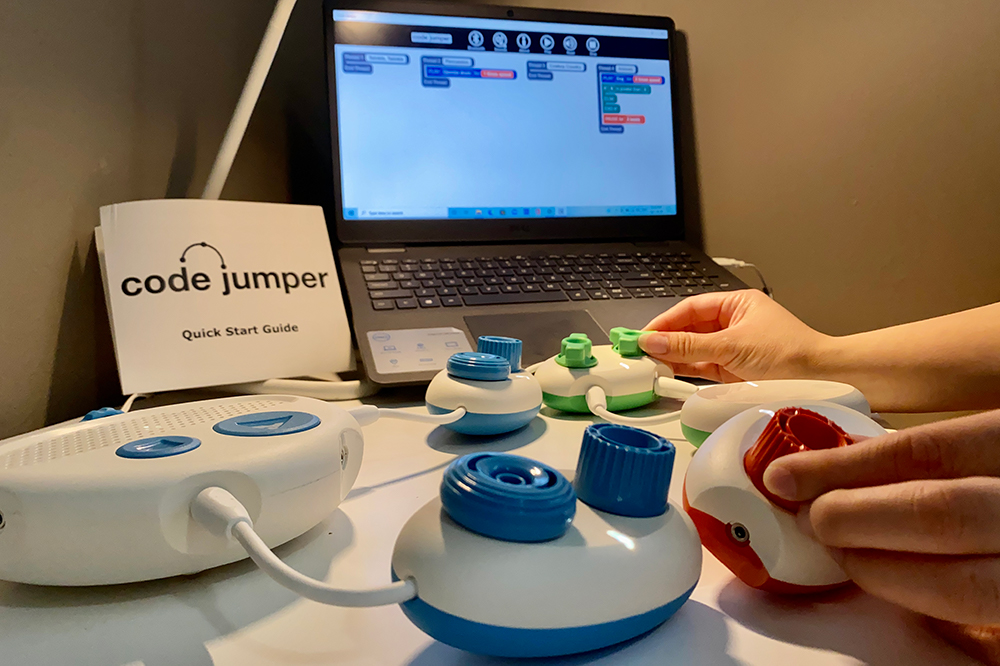New technologies will expand coding camp accessibility for youth with vision loss
Ontario Tech researchers awarded federal PromoScience funding
June 9, 2021

Traditional teaching models in science, technology, engineering and mathematics (known as ‘STEM’ disciplines) heavily rely on visual media where students see, learn, and practise. For example, visual programming employs blocks representing coding logic that allows instructors to introduce beginners to writing code in a drag-and-drop manner.
Unfortunately, such a teaching approach creates entry barriers for youth with visual impairments due to the lack of accessible materials and effective delivery strategies.
Ontario Tech University researchers Dr. Patrick Hung, Dr. Alvaro Quevedo, and Dr. Miguel Vargas Martin of the Faculty of Business and Information Technology (FBIT) explore ways to provide accessible technology such as haptic technology and Code Jumper for visually impaired youth to learn visual programming. Haptic technology creates an experience of touch by applying forces, vibrations, or motions to the user.
The Ontario Tech research project (‘Accessible Coding Camps for Youth with Visual Impairment’) has received new federal funding support through the Natural Sciences and Engineering Council of Canada’s (NSERC) PromoScience Program. PromoScience supports hands-on learning experiences for young students and their teachers. Grants cover improvements to program content or delivery, as well as new programs and activities.
“Code Jumper provides students a learn-coding experience by connecting together brightly coloured physical blocks, which are about the size of a softball,” says Dr. Hung, Associate Professor, FBIT. “The classes will be delivered online via the university’s Learning Management System with a summer camp that is designed to engage youth with visual impairments from grades 9 to 12.”
This program will be conducted jointly by FBIT at Ontario Tech University and by OCAD University, with the co-operation of Dr. Mahadeo Sukhai, Head of Research, and Chief Inclusion and Accessibility Officer with the Canadian National Institute for the Blind. Supporting industry partners A Square Quality Training and SenseTech Inc. have experiences in technology for visual impairment.
Dr. Hung’s research team is also working on a new paper block model with braille in different paper textures and smells. The goal is to provide an affordable tactile-interactive way for visually impaired students to self-learn computer coding at home.
The funding will be used to provide human, software, and hardware resources for supporting both online teaching and the residential camp over the next three years.



